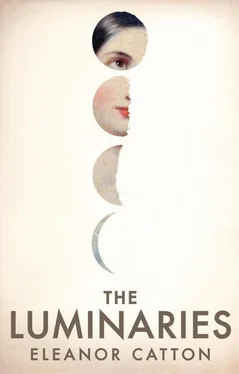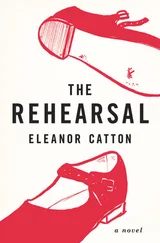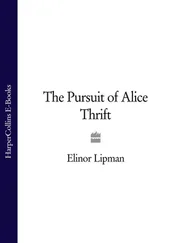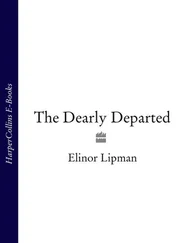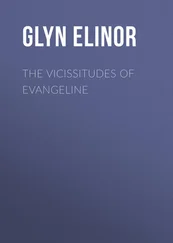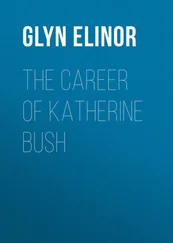‘I am the younger son of two,’ Moody began at last. ‘My brother, Frederick, is five years my senior. Our mother died near the end of my school years—I returned home only for a short time, to bury her—and shortly thereafter my father married again. His second wife was unknown to me then. She was—she is—a quiet, delicate woman, one who frighted easily, and was often ill. In her delicacy she is very unlike my father, who is coarse in his manner and much inclined to drink.
‘The match was poor; I believe both parties regretted the marriage as a mistake, and I am sorry to report my father treated his new wife very badly. Three years ago he disappeared, leaving her, in Edinburgh, without provision to live. She might have become a pauper, or worse, such was the sudden destitution in which she found herself. She appealed to me—by letter, I mean; I was abroad—and I returned home at once. I became her protector, in a modest sense. I made arrangements on her behalf, which she accepted, though somewhat bitterly, for the shape of her fortunes was much changed.’ Moody gave an awkward dry cough. ‘I secured for her a small living—employment, you understand. I then travelled to London, with the purpose of finding my father. There I exhausted all possible methods of locating him, and spent a great deal of money in the process. Finally I began to see about turning my education into an income of a kind, for I knew that I could no longer rely on my inheritance as surety, and my credit in the city had become very poor.
‘My elder brother knew nothing of our stepmother’s abandonment: he had left to seek his fortune on the Otago goldfields, some few weeks before my father disappeared. He was inclined to fits of whimsy of this kind—an adventurous spirit, I suppose you might call him, though we were never close with one another after childhood, and I confess I do not know him well. Months passed, and even years; he did not return, and nor did he send any news at all. My letters to him went unanswered. Indeed I still do not know if they ever reached his hands. At length I too booked my passage on a ship bound for New Zealand, my intention being to inform my brother of the changes in our family’s position, and—if he was alive, of course—perhaps to join him on the diggings for a time. My own fortune was gone, the interest on my perpetuity was long since exhausted, and I was in a great deal of debt. While in London I had studied at the Inner Temple. I suppose I might have stayed on, and waited to be called to the Bar … but I have no real love for the law. I could not stomach it. I sailed for New Zealand instead.
‘When I landed at Dunedin, not two weeks ago, I learned that Otago’s gold had been all but eclipsed by new findings here on the Coast. I hesitated, not knowing where to venture first, and was rewarded for my hesitation in the most unexpected way: I met my father.’
Balfour made a murmur, but did not interrupt. He was staring into the fire, his mouth pursed judiciously around his cigar and his hand loose around the base of his glass. The eleven others were equally still. The billiard game must have been abandoned, for Moody could no longer hear the click of the balls behind him. There was a sprung quality to the silence, as if the listeners were waiting for him to reveal something very particular … or fearing that he might.
‘Our reunion was not a happy one,’ Moody continued. He was speaking loudly, above the drumming of the rain; loudly enough for every man in the room to hear him, but not so loudly as to make it seem as if he was aware of their attention. ‘He was drunk, and extremely angry that I had discovered him. I learned that he had become extraordinarily rich, and that he was married again, to a woman who doubtless was innocent of his history, or indeed of the fact that he was legally bound to another wife. I was, I am sorry to admit, unsurprised. My relations with my father have never been warm, and this was not the first time I had caught him in questionable circumstances … though never in a situation of this criminal magnitude, I should hasten to say.
‘My real amazement came when I inquired after my brother, and learned that he had been my father’s agent from the outset: they had orchestrated the abandonment together, and had journeyed south as partners. I did not wait to encounter Frederick too—I could not bear it, to see them both together—and made to leave. My father became aggressive, and attempted to detain me. I escaped, and made the immediate plan to journey here. I had money enough to return to London directly, if I wished, but my grief was of a kind that—’ Moody paused, and made a helpless gesture with his fingers. ‘I don’t know,’ he said at last. ‘I believed the hard labour of the diggings might do me well, for a time. And I do not want to be a lawyer.’
There was a silence. Moody shook his head and sat forward in his chair. ‘It is an unhappy story,’ he said, more briskly. ‘I am ashamed of my blood, Mr. Balfour, but I mean not to dwell upon it. I mean to make new.’
‘Unhappy, indeed!’ Balfour cried, plucking his cigar from his mouth at last, and waving it about. ‘I am sorry for you, Mr. Moody, and commend you, both. But yours is the way of the goldfields, is it not? Reinvention! Dare I say—revolution! That a man might make new—might make himself anew—truly, now!’
‘These are words of encouragement,’ Moody said.
‘Your father—his name is also Moody, I presume.’
‘It is,’ Moody said. ‘His Christian name is Adrian; perhaps you have heard of him?’
‘I have not,’ Balfour said, and then, perceiving that the other was disappointed, he added, ‘—which means very little, of course. I’m in the shipping line of business, as I told you; these days I don’t rub shoulders with the men on the field. I was in Dunedin. I was in Dunedin for three years, near about. But if your pa made his luck on the diggings, he’d have been inland. Up in the high country. He might have been anywhere—Tuapeka, Clyde—anywhere at all. But—listen—as to the here and now, Mr. Moody. You’re not afraid that he will follow you?’
‘No,’ Moody said, simply. ‘I took pains to create the impression that I departed immediately for England, the day I left him. Upon the docks I found a man seeking passage to Liverpool. I explained my circumstances to him, and after a short negotiation we swapped papers with one another. He gave my name to the ticket master, and I his. Should my father inquire at the customhouse, the officers there will be able to show him proof that I have left these islands already, and am returning home.’
‘But perhaps your father—and your brother—will come to the Coast of their own accord. For the diggings.’
‘That I cannot predict,’ Moody agreed. ‘But from what I understood of their current situation, they had made gold enough in Otago.’
‘Gold enough !’ Balfour seemed about to laugh again.
Moody shrugged. ‘Well,’ he said coldly, ‘I shall prepare myself for the possibility of their arrival, of course. But I do not expect it.’
‘No—of course, of course,’ Balfour said, patting Moody’s sleeve with his big hand. ‘Let us now talk of more hopeful things. Tell me, what do you intend to do with your pile, once you have amassed a decent sum? Back to Scotland, is it, to spend your fortune there?’
‘So I hope,’ Moody said. ‘I have heard that a man might make a competence in four months or less, which would take me away from here before the worst months of winter. Is that a probable expectation, in your mind?’
‘Quite probable,’ Balfour said, smiling at the coals, ‘quite probable, indeed—yes, one might expect it. No mates in town, then? Folk to meet you on the quay, join up—lads from home?’
Читать дальше
